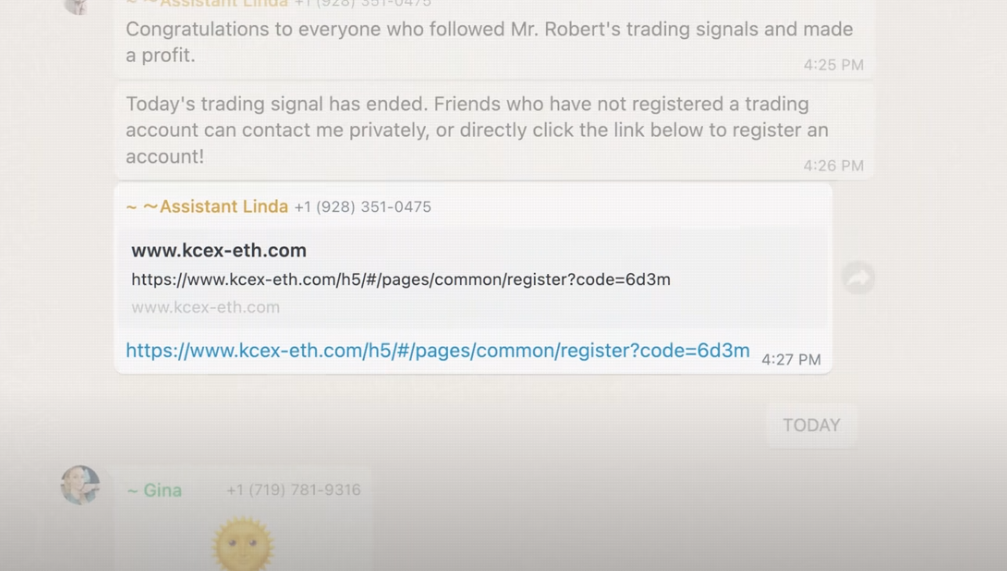Fear and familiarity are still two of the most effective strategies in cyber deception, as demonstrated by the Martinelli scam on WhatsApp, which is still spreading like a digital wildfire. A message from a reliable friend alerting you to a video called Martinelli that will “hack your phone instantly” is the first innocent step in the process. The urge to defend others is sparked by the warning’s urgency and personal feel. Ironically, the scam’s unrelenting expansion is fueled by the same protective instinct.
The Martinelli message, which was first brought to the attention of European authorities in 2017, reappeared this year using remarkably similar language and tone. The message is completely fake, according to the Royal Gibraltar Police, but it has undergone numerous translations and iterations. The latest version ties the scam to a purported update known as WhatsApp Gold, a premium version that doesn’t exist but purports to unlock “exclusive features.” Rather, users who click on these links are frequently taken to malicious websites that have the ability to steal personal information.
Malwarebytes and Snopes researchers discovered that the scam functions on both an emotional and technical level. On an emotional level, it takes advantage of people’s propensity to share warnings promptly and trust contacts. In theory, it incorporates phony download prompts that deceive users into installing malicious software masquerading as updates. The fraudulent “WhatsApp Gold” can surreptitiously collect contact lists, saved images, and login information after it has been downloaded.
Martinelli Scam – Overview Table
| Attribute | Detail |
|---|---|
| Type | Hoax / Cyber Scam |
| Origin Year | 2017 (Spain) |
| Latest Surge | October 2025 |
| Primary Platform | WhatsApp Messenger |
| Alleged Threat | “Martinelli” video that installs malware |
| Linked Scam | “WhatsApp Gold” / “WhatsApp Plus” fake upgrade |
| Main Risk | Data theft and malware installation through unofficial downloads |
| Fact-Checked By | Snopes, BBC, Malwarebytes, Royal Gibraltar Police |
| Official Reference | Royal Gibraltar Police Warning |

The psychology of the scam is more sophisticated than its coding. Experts in cybersecurity refer to it as “altruistic malware” since it propagates with the best of intentions. People spread it for protection rather than profit. Because of this dynamic, the Martinelli hoax is extremely successful and challenging to dispel despite numerous official warnings.
WhatsApp has acknowledged that the message is a hoax, making it very clear that there is no such version as WhatsApp Gold or Plus. Users were advised by the company to only download the app from reputable app stores. Snopes gave the hoax a “False” rating, stating that no video can compromise a device just by being played. However, the scam continues to evolve, resurfacing every few years and affixing itself to genuine security discussions.
The Martinelli scam’s enduring popularity is reminiscent of larger cycles of false information on the internet. A rumor acquires a self-sustaining rhythm once it is planted. Thousands of users start sharing warnings, motivated more by emotion than by facts, like a swarm of bees roused from their hive. Even with the best of intentions, every forward adds to the web of lies.
In 2025, organizations like the Oxfordshire County Council reissued their warnings, stressing that users should report the messages instead of forwarding them. Because it imitates real public safety alerts, the scam is “particularly manipulative,” according to the council’s cyber safety team. In order to reach a wider audience in international communities, the scam even takes advantage of linguistic quirks by appearing in Arabic, Spanish, English, and French.
The way that this digital hoax mirrors broader societal trends is remarkable. People are trained to respond quickly in a time characterized by instant messaging and viral content. With surgical accuracy, the Martinelli warning triggers that reflex. Citing fictitious tech updates or making reference to “official announcements” gives it a sense of plausibility while maintaining urgency. It is particularly persuasive to users who are otherwise wary of the internet because of this deft combination.
Scammers such as Martinelli thrive on emotional timing, according to experts from Avira and Norton Security. They frequently reappear during significant world events, such as app updates or cybersecurity breaches, when privacy concerns are at their highest. Scammers can exponentially expand their reach by taking advantage of the attention that people give each other. It serves as a reminder that cybersecurity is a human behavioral challenge as well as a technical one.
The good news is that awareness campaigns have greatly lessened the overall impact of the scam. Users are now better equipped to spot hoaxes more quickly thanks to educational initiatives from independent tech forums, police departments, and local councils. These campaigns are particularly successful because they blend relatable storytelling with technical instruction, showcasing actual incidents where people almost became victims but were able to stop, check, and report.
Even influencers and celebrities have helped raise awareness. Short-form videos that emphasize empathy and humor over fear have been used by social media celebrities to refute the hoax. Their method seems especially creative since it makes cybersecurity education approachable and communicative. It is evidence that, when presented with hope and pragmatism, group responsibility can triumph over malevolent intent.
WhatsApp keeps bolstering its defenses from a technological perspective. Its reporting tools, spam filters, and verification systems are now very effective at spotting malicious forwarding patterns. Because of these enhancements, user safety has significantly increased, making it more difficult for large-scale scams to continue. However, no algorithm can completely replace human judgment; hundreds of needless alerts can be avoided with just one pause before forwarding.
